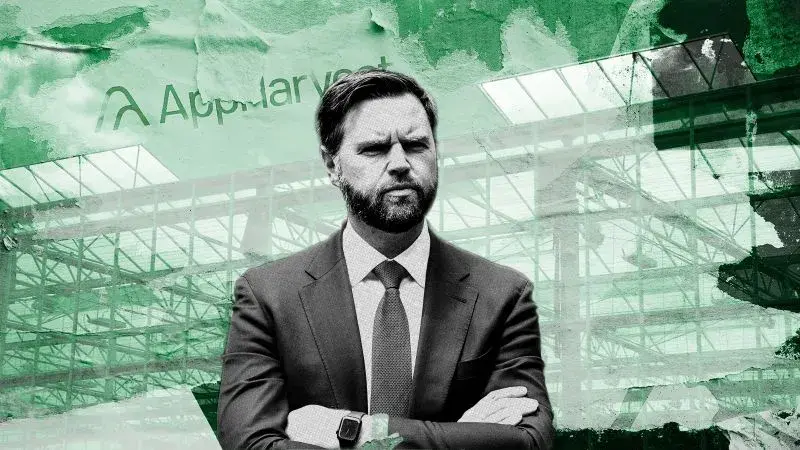As a venture capitalist, JD Vance repeatedly touted his guiding principles for investing in a company: A business should not only turn a profit, it should also help American communities.
That’s why, he said, he invested in AppHarvest, a startup that promised a high-tech future for farming and for the workers of Eastern Kentucky. Over a four-year span, Vance was an early investor, board member and public pitchman for the indoor-agriculture company.
[…]
Last year, facing hundreds of millions of dollars in debt, AppHarvest declared bankruptcy.
The rise and fall of the company, and Vance’s role in it, cuts against his image as a champion for the working class — an image that helped catapult him to the top of the Republican ticket as Donald Trump’s running mate.
[…]
AppHarvest not only failed as a business after pursuing rapid growth, but also provided a grim job experience for many of the working-class Kentuckians Vance has vowed to help.
AppHarvest employees said they were forced to work in grueling conditions inside the company’s greenhouse, where temperatures often soared into the triple digits. Complaints filed with the US Department of Labor and a Kentucky regulator between 2020 and 2023 show that workers alleged they were given insufficient water breaks and weren’t provided adequate safety gear. Some workers said they suffered heat exhaustion or injuries, though state inspectors did not find violations.
Despite promising local jobs, the company eventually began contracting migrant workers from Mexico, Guatemala and other countries, numerous former employees [said].
[…]
With the blockbuster success of his 2016 memoir “Hillbilly Elegy,” Vance was riding high. He had learned how to invest in startups in Silicon Valley, where he worked at PayPal co-founder Peter Thiel’s firm. Thiel would later bankroll Vance’s own VC fund and Ohio senatorial run.
[…]
Things started out well [for AppHarvest, says ormer worker Anthony Morgan]. The hours were manageable, and the benefits were better than anything he could hope to get from other employers in the area. Then, a few months in, Morgan recounted a noticeable shift in the company’s culture.
Production fell behind and workers got the message that they needed to pick up the pace, Morgan said. The company cut costs, including the employer-paid health care benefits, and managers were tasked with meeting far higher production quotas. That meant longer hours for workers and fewer breaks in the brutal heat of the greenhouse.
“I think about the hottest that I experienced was around 128 degrees,” Morgan said. “A couple days a week, you’d have an ambulance show up and you seen people leaving on gurneys to go to the hospital.”
The conditions became intolerable, and employees began to leave the company in droves, several workers told CNN. Morgan helped organize an employee sit-in to demand fairer working conditions, and said that he was fired after he took time off for medical care for an injury he said he suffered on the job.
“It was a nightmare that should have never happened,” Morgan said of his experience overall.


